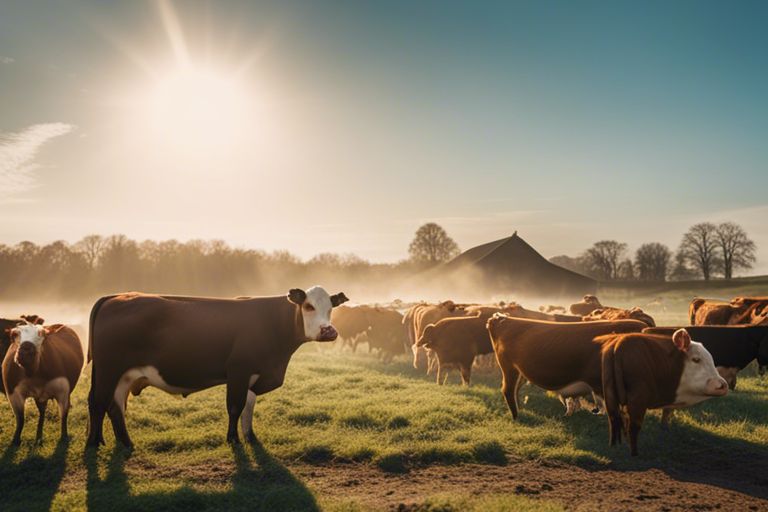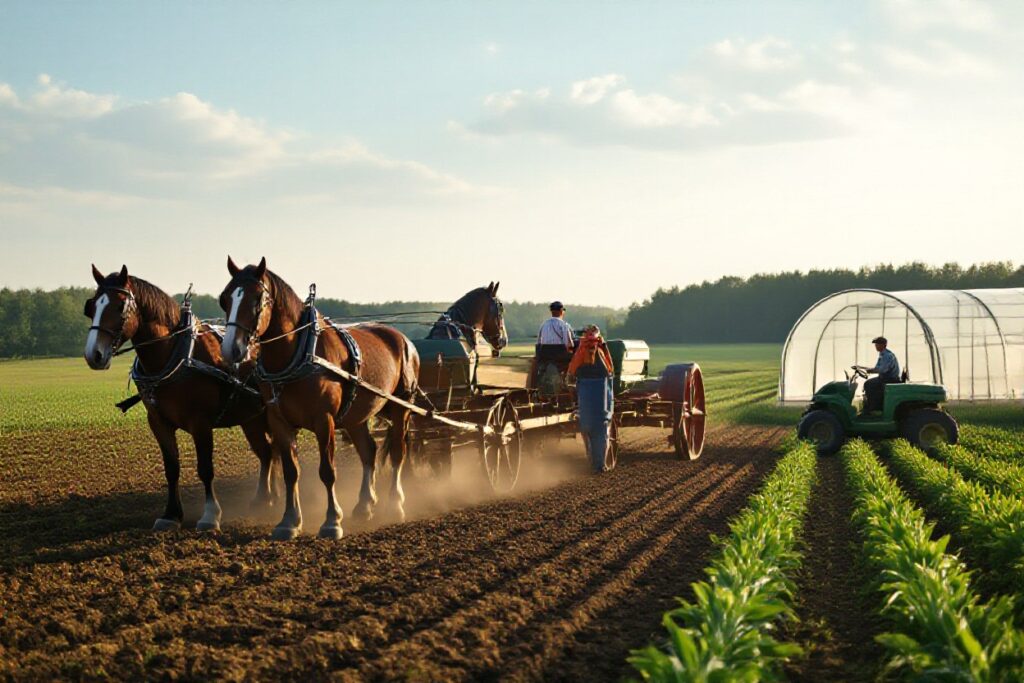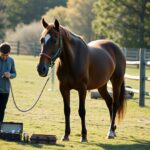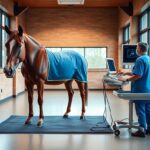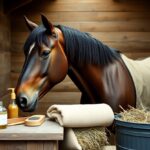With the rise in feed costs and the importance of sustainable farming practices, maximizing feed efficiency for your livestock has become a crucial aspect of modern agriculture. By utilizing strategic feeding practices and implementing innovative technologies, farmers can optimize their animals’ nutrition, reduce waste, and ultimately improve their bottom line. In this blog post, we will explore various strategies and tips to help you enhance feed efficiency on your farm and ensure the health and productivity of your livestock.
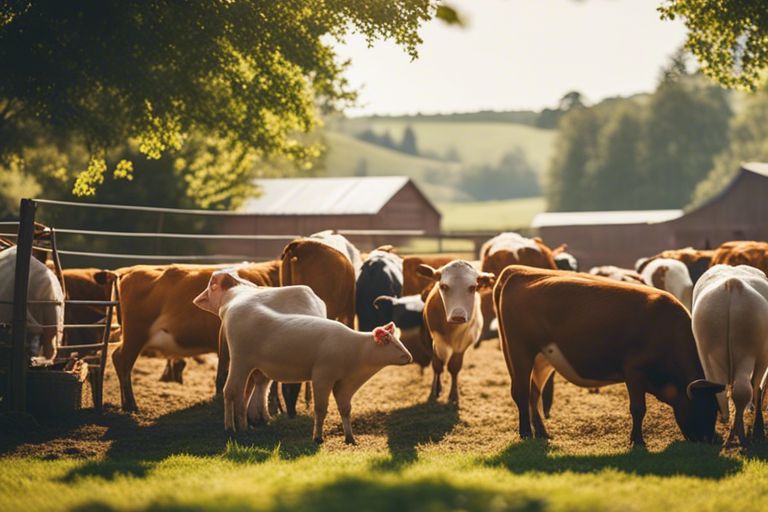
Understanding Feed Efficiency
Definition and Basic Concepts
Understanding feed efficiency is crucial for optimizing livestock production. Feed efficiency is the measure of how well an animal converts feed into body weight or milk production. It is typically expressed as a feed conversion ratio, which is the amount of feed needed to produce a unit of output.
Factors Affecting Feed Conversion Ratios
One of the key factors affecting feed conversion ratios is the quality of the feed. High-quality feed with the right balance of nutrients can improve conversion efficiency. Other factors include the animal’s age, genetics, health status, and environmental conditions. Perceiving these factors can help farmers make informed decisions to maximize feed efficiency.
Another critical factor is feed management practices. Factors such as feeding schedules, portion sizes, and feed formulation can significantly impact feed conversion ratios. By implementing proper feed management strategies, farmers can improve the overall efficiency of their livestock operations. Perceiving these factors allows for the optimization of feed efficiency while maintaining the health and productivity of the animals.
Nutritional Strategies
Balanced Diets and Nutrient Requirements
With the goal of maximizing feed efficiency for your livestock, it is crucial to provide them with well-balanced diets that meet their specific nutrient requirements. Understanding the nutritional needs of your animals based on their age, weight, and activity level is crucial for ensuring optimal health and performance.
The Role of Supplements and Additives
On top of a balanced diet, supplements and additives can play a key role in enhancing the overall nutritional value of your livestock’s feed. These additional elements can help address specific deficiencies, improve digestion, boost immunity, and support growth and reproduction. However, it is important to consult with a veterinarian or animal nutritionist before incorporating any supplements to ensure they are safe and effective for your animals.
Diets rich in nutrients and properly supplemented can have a significant impact on the overall health and productivity of your livestock. By carefully considering the nutrient requirements of your animals and utilizing supplements strategically, you can maximize feed efficiency and ultimately improve the performance and well-being of your livestock.
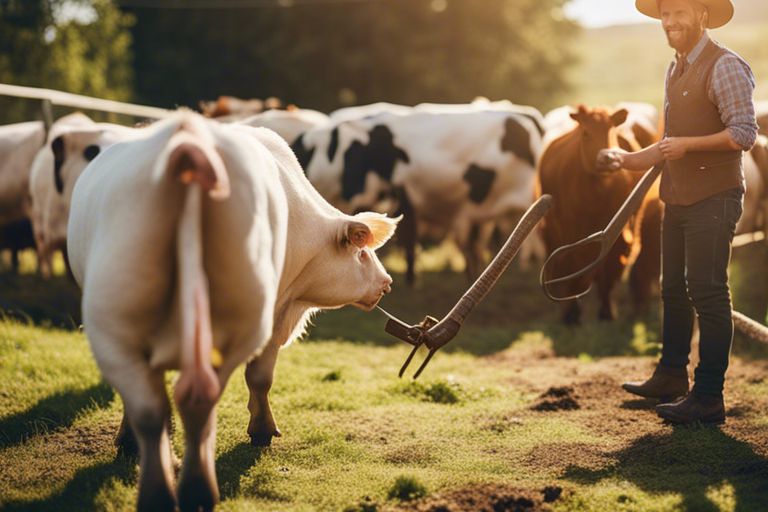
Management Practices
Optimizing Feeding Times and Frequencies
Many factors can influence the efficiency of feed utilization in livestock, with feeding times and frequencies being crucial elements to consider. To maximize feed efficiency, it is vital to establish consistent feeding times and frequencies for your animals. This helps in creating a routine for the livestock, ensuring they receive the necessary nutrients at the right intervals to support their growth and productivity.
Monitoring and Adjusting Based on Livestock Needs
Feeding practices should not be set in stone, as the nutritional requirements of livestock can vary based on factors such as age, weight, and stage of production. Monitoring the health and condition of your animals regularly is vital to assess if the current feeding regimen is meeting their needs. With a keen eye on their performance and behavior, adjustments can be made to the feed ration to optimize feed efficiency and overall productivity.
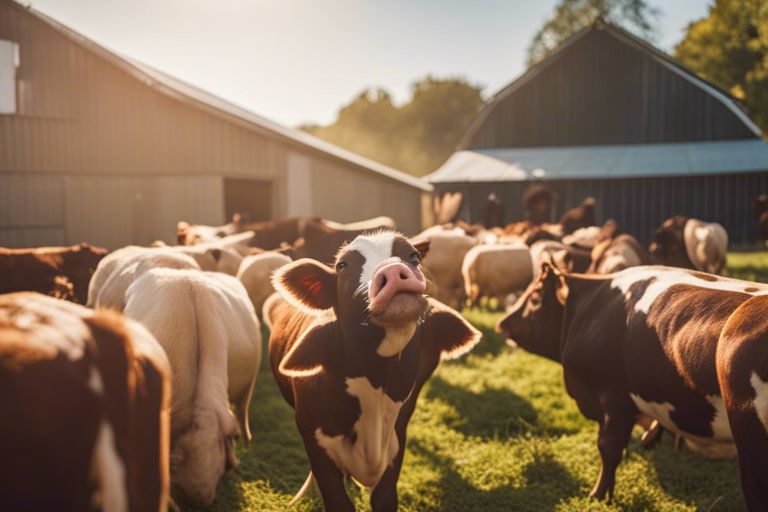
Technological Innovations
Precision Feeding Systems
Technological advancements have revolutionized the way we feed livestock, offering precision feeding systems that tailor feed rations to the specific needs of individual animals. These systems utilize sensors, automated feeders, and algorithms to optimize feeding efficiency, reduce waste, and improve animal performance.
Data Analysis and Performance Tracking
Technological innovations in data analysis and performance tracking have enabled livestock producers to monitor feed efficiency and animal growth in real-time. By collecting and analyzing data on feed intake, weight gain, and other performance metrics, producers can make informed decisions to maximize feed efficiency and profitability.
Feeding livestock is a critical component of livestock management, and technological innovations have made it easier to achieve optimal feed efficiency and reduce feeding costs. By implementing precision feeding systems and utilizing data analysis tools, producers can ensure that their livestock are receiving the right amount of feed at the right time, leading to healthier animals and improved bottom lines.
Final Words
Considering all points discussed, maximizing feed efficiency for your livestock is crucial for both the health of your animals and the profitability of your operation. By carefully selecting high-quality feed, optimizing feeding schedules, and managing any waste effectively, you can ensure that your livestock are receiving the nutrients they need to thrive while minimizing costs. Additionally, monitoring and adjusting your feeding practices as needed will help you continuously improve efficiency and productivity on your farm. Be mindful of, a well-balanced diet is key to raising healthy, market-ready animals. Stay informed about the latest research and best practices in livestock nutrition to stay ahead of the game and maximize the potential of your operation.
FAQ
Q: Why is feed efficiency important for livestock?
A: Feed efficiency is crucial for livestock because it directly impacts production costs and overall profitability. Efficient feed conversion helps maximize the growth and health of the animals while minimizing wastage and expenses.
Q: What is feed efficiency in livestock management?
A: Feed efficiency in livestock management refers to the ability of animals to convert the feed they consume into body weight or products such as milk or eggs efficiently. It is a key indicator of how effectively animals utilize the nutrients in their feed.
Q: How can I maximize feed efficiency for my livestock?
A: To maximize feed efficiency for your livestock, ensure a balanced and properly formulated diet, provide clean and fresh water at all times, practice good feeding management, and monitor the animals’ health and performance regularly.
Q: What role does genetics play in feed efficiency?
A: Genetics plays a significant role in feed efficiency, as certain breeds or genetic lines have been selected for their ability to convert feed into growth more efficiently. Choosing animals with good genetic potential for feed efficiency can help improve overall performance.
Q: How does feed quality affect feed efficiency?
A: Feed quality directly influences feed efficiency, as high-quality feeds with the right balance of nutrients are more easily digested and utilized by the animals. Poor-quality feeds can lead to inefficiency in nutrient utilization and suboptimal growth and production.
Q: What are some common strategies to improve feed efficiency in livestock?
A: Common strategies to improve feed efficiency in livestock include optimizing feed formulations, providing a comfortable and stress-free environment, ensuring proper stocking densities, implementing efficient feeding systems, and regularly monitoring and adjusting feeding practices.
Q: Why is it important to regularly monitor and evaluate feed efficiency in livestock?
A: Regular monitoring and evaluation of feed efficiency in livestock are crucial to identify any inefficiencies, adjust feeding practices as needed, track performance over time, and make informed decisions to improve overall productivity and profitability of the operation.
